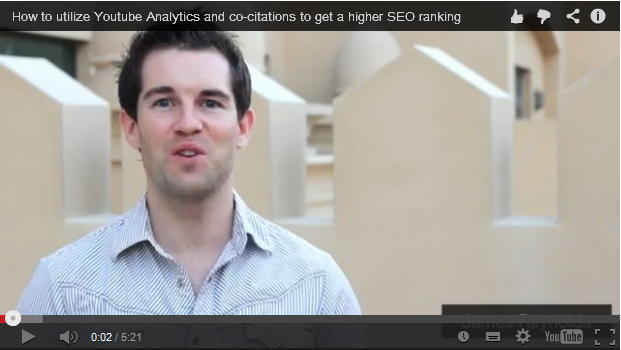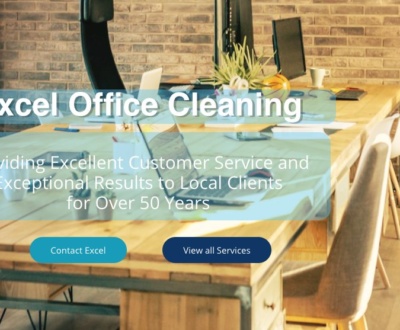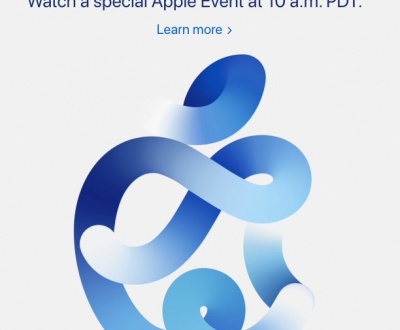SEO link-building and co-citation
- September 25, 2013
- Google, Google Analytics, SEO, Tips and Tricks
SEO Thought for the week
As part of our role as advising clients on Digital Marketing we virtually always get asked how you get to the top on Google. We always respond with – it depends and this starts a conversation about site designs, rankings, key words and of course SEO.
Part of any engagement is reviewing the current website traffic and the sources for these visits. Google Analytics gives a reasonable stab at showing the words used to find the website. The more astute users of Google Analytics will have seen the share of traffic classifies as ‘Not provided” is growing and in more and more cases represents the bulk of the searches, As this example shows of the 152 visitors to Evinfo.co.uk who came via organic searching 122 are classified as ‘not provided’. That’s close to 80%. This is changing and it’s only going to get worse.
What does ‘Not Provided’ mean? Basically it means that Google knows but it is not going to share that data. Google has been steadily increasing the security of search with the use of encryption. Google has now has switched all searches over to encrypted searches using HTTPS. This means no more keyword data will be passed to site owners.
Encrypted Google searches don’t push the keyword data through to websites, thereby eliminating the ability to track users by their keyword searches. The biggest impact for many site owners has been not being able to segment users by keywords within their Google analytics of other web analytics software.
One of our regular news feeds Search Engine Watch, reached out to Google for a comment. They respond:
“We added SSL encryption for our signed-in search users in 2011, as well as searches from the Chrome omnibox earlier this year,” a Google spokesperson told Search Engine Watch. “We’re now working to bring this extra protection to more users who are not signed in.”
When encrypted search initially launched in May 2010, Google initially had encrypted search on a separate URL. A year later, in late 2011, Google started redirecting all U.S. users who were signed into their Google Accounts to the encrypted version at https://google.com. This led to the now-infamous “(not provided)” row in keywords data in Google Analytics and other web traffic software packages.
When questioned, Cutts was quick to respond that it was estimated that the amount of “(not provided)” visits “even at full roll-out … would still be in the single-digit percentages of all Google searchers on Google.com.”
As time rolled on, the conversion to encrypted search expanded globally to all signed-in users then even further to include default searching in Firefox
Just last month, BrightEdge released a study fining the percentage of “(not provided)” data was over 50 percent for some industries.
There are methods around determining “(not provided)” data via Webmaster Tools. While the method isn’t fullproof, it can be useful to determine trends.
At this point, it seems even when you aren’t logged in, using private browsing (or incognito mode) and forcibly type HTTP://www.google.com, you are being redirected to the HTTPS version, thereby encrypting your search and no doubt leading to a total removal of keyword data – at least from Google search visitors. Remember, keyword data from other search engines – like Bing and Yahoo for example – still send keyword data through.
This boy and girls is a big change, and it’s only going to make visitor intentions harder to monitor. It does reinforce one of our top strategies and our favourite tool for increasing ranking, better and more content. As we have said to all our clients, content is critical and getting more so. The links and link quality remain key but Google is rewarding rich, high quality content now more than ever.
Speaking of links for a second. Link building has been a stable for SEO agencies for many years. One of the major factors impacting rankings relate to the number and quality of Inbound Links to any website. Each link to your site has a source, the website where the link originates, and in that link is what’s called the Anchor Text that basically describes what the link relates to. These anchors are important as they tell Google how the sites are related. This is also changing.
Google intends to change link-building radically and leave behind the-so-much-used anchors. The reason for these actions are manipulations with the anchor text.
Recently there appeared a new term in link-building called co-citation, but some people still don’t understand what it is. Actually co-citation emerged more than a year ago, still not many developers paid attention to this technique.
To start, we need to figure out what co-citation is. It occurs when two Internet resources relate to each other and do not directly refer to one another.
Example:
There is an article on the EVinfo blog site about Tesla Eclectic Cars in Europe. However there is no direct link to Tesla from EVinfo and no link from Tesla to EVinfo. However Google starts to relate the two sites and the EVinfo site is ranked for Tesla in Europe.
It turns out that we are returning to content marketing, which increasingly becomes the basis for promoting in Google. As for directions from Google you can find a lengthy article of a leading SEO analytics Rand Fishkin at one of our key partners, SeoMoz.
Let’s see what Rand Fishkin thinks about co-citation and disappearance of anchors.
This short video also talks about the benefits of co-citation and that content is critical. Keyboards at the ready and give me 350 words on your favourite subject.
Taybridge Takeaway
- We need to make use of Google+, Facebook or Twitter because only there we can fully unleash the potential of co-citation.
- We must look for other offline methods to co-citation. I mean, first of all, the regional media and magazines (weird, but it actually works).
- Talk, talk and talk to bloggers in your niche.
About us and this blog
We are a digital marketing company with a focus on helping our customers achieve great results across several key areas.
Request a free quote
We offer professional SEO services that help websites increase their organic search score drastically in order to compete for the highest rankings even when it comes to highly competitive keywords.












